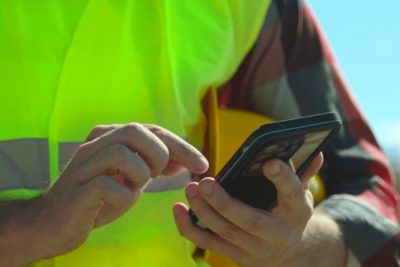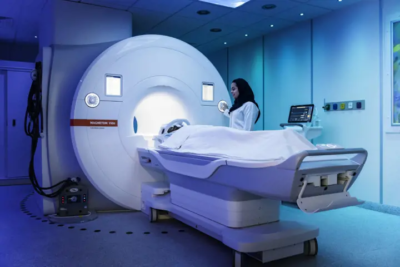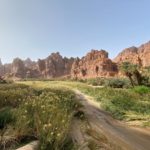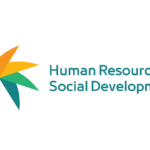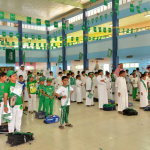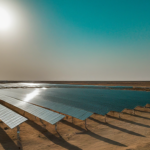
“My friends and I will have to start thinking twice about every outing. We will start thinking about quality now; will the place we are going to provide us with a good experience from the moment we step foot in, or not? Every riyal is valuable now.”
-Arab News tasked a team of reporters to speak with Saudi citizens about how they will adjust their spending habits following the recent VAT rate increase to 15%. [Arab News]

“My grandfather used to go to work on horseback; my father flew fast jets; and a cousin of mine was the first Arab in space. And that’s in three generations. And God knows the gap between that and my children and the world they grow up in.”
-Khalid Bin Bandar Al-Saud, Saudi ambassador to the UK, speaks with Freddie Sayers in a lengthy interview for UnHerd. [UnHerd]

“They start at 17-18 years old and then they continue for the long-term. This is a source of strength for the company going forward, especially with a lot of things in terms of artificial intelligence, the Internet of Things, the Fourth Industrial Revolution, and machine learning. This is where the company is heading. That new young workforce will help us a lot to achieve our goals. Then we have another program which is for university. We take them from high school, and we send them for either a bachelor’s degree, or a master’s, or both, or Ph.D.”
-Amin H. Nasser, Saudi Aramco President and CEO, speaks with Daniel Yergin for CERAWeek Conversations about a broad range of topics including the fact that half of Saudi Aramco’s workforce is under 35. [Businesswire]

“Tourism constitutes 10% of the average total income of the world’s economies. This sector constitutes 18 percent of Spain’s income, for example, 16 percent of France’s income, while it contributes 3.5 percent of the income in the Kingdom’s economy. We look forward to raising the sector’s contribution to 10% by 2030.”
-Saudi Gazette speaks with Ahmed Bin Aqeel Al Khateeb, chairman of the Board of Directors of the Saudi Tourism, who adds that the Kingdom is working on opening 38 tourist sites in seven tourist destinations by 2022, compared to 15 sites available in four tourist destinations ready to receive tourists today. [Saudi Gazette]

“Globally, the gaming industry has grown faster than anyone could have ever imagined. It is now a $129 billion-a-year business with an estimated 2.5 billion gamers worldwide.”
-Hicham Fadel, a partner with Strategy & Middle East, part of the PwC network, speaks with Caline Malek in an Arab News report on the meteoric growth of e-sports in Saudi Arabia and the region. [Arab News]

“Abdulaziz succeeded against daunting obstacles against the wishes of two imperial powers while taking advantage of the changing political environment, creating and inspiring a military force that suited his objectives, and also subduing that very force when it threatened to undo his achievements.”
–Zoltan Barany writing for the Arab Gulf States Institute in Washington analyzes formative moments that shaped Gulf Arab militaries including tribalism, King Abdulaziz al-Saud and the Ikhwan, the British legacy, the formation of the UAE and its United Defense Force, the Iraqi invasion of Kuwait, and the Arab Spring uprisings. [AGSIW]

“Suddenly you would have pretty much the whole population of Saudi Arabia supporting Newcastle. They would see that as a very, very positive and strong move and would be a massive boost. It would sit well, especially with Saudi youth, which is the predominant demographic in the country.”
-Neil Quilliam, Associate Fellow, Middle East and North Africa Program, Chatham House, discusses the impact of the proposed Saudi acquisition of the Newcastle United Football Club in the English Premier League. [This is Futbol]

“As a group, sovereign funds have doubled their participation in local economies since 2015, according to The International Forum of Sovereign Wealth Funds. The pandemic will accelerate this trend, especially as funds have more cash on hand: 31% revealed plans for an overweight cash position in the next 12 months, the SWFI’s March 2020 survey shows.”
-Una Galani writing for Reuters examines sovereign wealth funds globally and how many of them are bolstering local economies during the fallout from the Covid-19 pandemic. [Reuters]

“Real estate financing is expected to grow by 2.3 times over the next decade to become around 10 percent of the gross domestic product, worth some $270 billion, by 2029. Saudi Arabia is expected to build around 200,000 houses and apartments per year in that period.”
-Frank Kane in Arab News discusses real estate finance group Amlak International and it’s plans to list 30% of it’s equity. With retail group Bin Dawood also planning an IPO, he concludes the Amlak IPO is an important test of investor sentiment following Saudi Arabia’s economic lockdown. [Arab News]

“With the myriad challenges facing the Saudi economy, a successful recovery and evolution will require several key outcomes. The government will need to be disciplined, willing to deviate from long-established norms, and able to make decisions that will be painful in the short-term….A reform-driven period also provides the opportunity for the Saudis to be decisive and reset elements of the economy that have lagged. The economy can re-emerge with a renewed dedication to the private sector’s potential and new opportunities for youth employment. During the pandemic, the kingdom can capitalize on recent progress in the digital space, through mobile apps, government service portals, and e-commerce.”
-Bayly Winder, writing for the Carnegie Endowment for International Peace, discusses how the Saudi economy can embrace challenges brought on by a global recession and pandemic and emerge stronger in years to come. [carnegieendowment.org]

